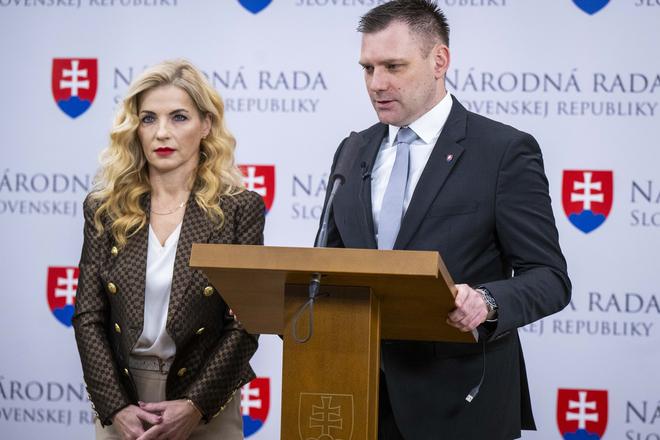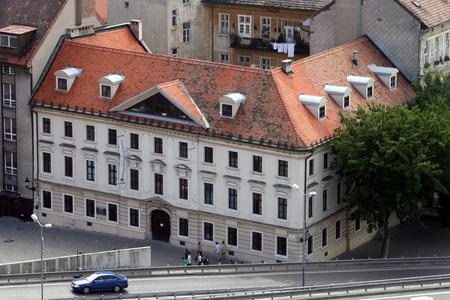Last Tuesday, February 18, Culture Minister Martina Šimkovičová once again criticised Zuzana Liptáková, former director of Bibiana, the International House of Art for Children in Bratislava. This time because after being appointed, the latter employed two people who had been seeing a psychiatrist.
According to the minister, when Liptáková became the director, many long-time employees left, which meant she had to hire people.
"So, dear journalist, these included hiring two people who had been in outpatient psychiatry treatment. Bibiana is an institution for children," Šimkovičová said during a press conference last week.
Stigmatisation of people
When the Denník N daily asked how the minister came to know this information, ministry spokesperson Petra Bačinská said that obtaining such information was not part of a previous audit of Bibiana and added that since Šimkovičová did not name the persons in question, she did not break the law. Later, Bačinská denied that the minister looked into the health information of Bibiana employees.
"Shouldn't you be more concerned whether the safety of children was not endangered?" the spokesperson added.
The Slovak Psychiatry Association, comprising of about 550 members criticised Šimkovičová for her comments, saying that such remarks stigmatise and discriminate against people with psychiatric disorders.
According to Boris Moťovský, chief physician of the Psychiatry Department at the Trenčín Faculty Hospital, mental disorders are among the most common in the world, with between 40 to 50 percent of people in Western countries seeing a psychiatrist or therapist, and this includes people that carry out very important and responsible every day tasks.
"Saying that professionals in an outpatient psychiatry treatment taking part in educating children is problematic, is a gross misunderstanding of the situation," Moťovský told Denník N, adding that Šimkovičová's remarks may unnecessarily stigmatise people.
The minister responded by dismissing the psychiatrists who had criticised her, calling them "moralists" who, she claimed, had violated professional and ethical standards when they urged Prime Minister Robert Fico to resign in an open letter in January. She also accused them of remaining silent when children were confined to their homes during the pandemic.
"The moralists are now hypocritically moralising," Šimkovičová wrote.
A recent Focus agency poll for the news website 360tka.sk found Šimkovičová to be the least trusted minister - 72 percent - in Fico's fourth government.
Not the only one
Psychiatrist Barbora Vašečková told the daily that the real risk comes from those who need treatment but do not receive it, not from those who are undergoing care.
Several public figures have urged the culture minister to apologise for her remarks on mental health, including singer Zuzana Smatanová.
"I am a former psychiatric patient, and thanks to the help of my psychiatrist, medication, therapy, and my own determination, I saved myself from burnout and severe depression," she wrote on Instagram.
Smatanová has previously spoken openly about her struggles with mental illness. She criticised Šimkovičová's comments as insensitive and discriminatory.
Meanwhile, Zora Jaurová, a lawmaker from the opposition party Progressive Slovakia, announced on social media that she and her colleague Lucia Plaváková filed a criminal complaint against Minister Šimkovičová on February 20. Jaurová called it "unacceptable and scandalous" for a minister to "publicly disclose highly sensitive, protected medical information about anyone" at a press conference.
Šimkovičová is not the only minister that verbally attacked people seeking help for their mental illness.
When film producer Wanda Adamík Hrycová criticised Tomáš Taraba (SNS nominee) for being picked to head the Environment Ministry in 2023, he took to social media and said that he 'would prefer not to say anything and make it worse for Adamík Hrycová', who at the time had been battling severe depression and panic attacks.




